Estate Planning Lawyer Miami, Florida
Trusted and Experienced Estate Planning Lawyer
Free consultation 24/7
Got a Problem? Consult With Us
For Assistance, Please Give us a call or schedule a virtual appointment.
Recognition






Estate Planning Attorney Miami - Morgan Legal Group PLLP: Leading Estate Planning Firm in Miami
Estate Planning Law Firm Miami – Morgan Legal Group PLLP, situated in Miami, Florida, is a distinguished name in estate planning. With a rich legacy spanning decades in the legal sector, our firm has firmly established its reputation in the bustling city of Miami. Over the years, we have served local and international clients, offering comprehensive legal services.
Our team of adept attorneys specializes in a spectrum of estate planning facets, encompassing estate litigation, wills and trusts, probate, asset protection, guardianship, elder law, power of attorney, and related domains. Pledged to excellence, our Miami-based estate planning lawyers diligently stay abreast of the dynamic legal landscape, encompassing the latest laws, rules, and regulations pertinent to Miami’s Surrogate Court. Their profound expertise and extensive experience underpin our firm’s ascendancy in the legal arena.
As a premier player in estate planning, we have adeptly managed many cases across diverse realms, including estate litigation, wills and trusts, probate, asset protection, guardianship, elder law, and power of attorney. Our proven track record of favorable outcomes underscores our adeptness in navigating intricate legal scenarios.
At Morgan Legal Group PLLP, our paramount focus is furnishing clients with unparalleled legal guidance and support to mitigate potential legal quandaries proactively. Thanks to the adept counsel of our Miami estate planning attorneys, countless clients have adeptly resolved their legal matters, ensuring the materialization of their ultimate wishes.
Estate Planning Attorney Miami - Serving Miami Area. Experience our law-focused legal advice provided by our skilled Estate Planning Lawyers in Miami
As seasoned legal professionals at Morgan Legal Group PLLP, situated in the vibrant city of Miami, we understand the weight of decisions related to estate planning. Are you considering the formulation of a will to ensure the protection of your hard-earned assets? Are you searching for a suitable guardian to shepherd your children’s future? Are the complexities of estate litigation casting shadows on your peace of mind? We recognize that navigating these matters can be daunting, and that’s precisely why having a proficient and dedicated attorney by your side is indispensable.
Our esteemed legal practice, firmly rooted in the heart of Miami, is known for its unwavering commitment to excellence. At Morgan Legal Group PLLP, we are proud to boast a team of adept and knowledgeable attorneys who specialize in a spectrum of areas, including estate planning, estate litigation, wills and trusts, probate proceedings, asset preservation, guardianship matters, elder law concerns, and power of attorney representations.
Our paramount mission revolves around extending our client’s optimal support while staying well within the confines of the law. We are resolute in efficiently resolving intricate legal affairs, protecting our clients against potential litigation adversities. The attorneys affiliated with Estate Planning Lawyers Miami profoundly comprehend the most current legal statutes, regulations, and mandates that govern intestate succession and estate taxation. Our proficiency spans Miami’s Surrogate Court and transcends geographical boundaries, encompassing international jurisdictions.
Contact us at Morgan Legal Group PLLP, your trusted legal partner in Miami, as you navigate the intricate landscape of estate planning and related legal intricacies.
Comprehensive Estate Planning Services:
Experienced and Knowledgeable Attorneys:
Client Satisfaction and Results:
Confidence in the legal field. We protect you from problems!

Morgan Legal Group PLLP: Premier Estate Planning Excellence in Miami
At Morgan Legal Group PLLP, nestled within the vibrant city of Miami, we have forged our identity as the epitome of estate planning excellence.
As the preeminent authority in the field, our reputation is a reflection of a distinct amalgamation of exceptional attributes and unparalleled expertise. Our prominent standing in the industry owes itself to a confluence of critical factors:
Decades of Experience and Expertise:
With a legacy of decades steeped in specialized estate planning experience, our firm has honed remarkable expertise. Our assembly of highly proficient attorneys boasts an unparalleled grasp of the intricate laws, regulations, and practices governing estate planning within the Miami landscape. This extensive journey equips us to traverse the complexities of the legal domain with unfaltering precision and efficiency.
Solutions Tailored to You:
Appreciating the unique tapestry of each client’s estate planning requirements, we embrace a bespoke approach that crafts solutions in alignment with individual objectives. Our legal practitioners collaborate intimately with clients to discern their singular circumstances, yielding comprehensive strategies that cater to distinct needs.
Dedicated to Client Fulfillment:
The cornerstone of our ethos is unwavering client contentment. We transcend expectations to ensure that our clients bask in unparalleled service quality and steadfast support across their estate planning odyssey. Our dedicated ensemble remains readily accessible to address queries, extend counsel, and offer expert guidance at each juncture of the process. We prize open communication, transparency, and responsiveness, nurturing enduring relationships built on trust.
Comprehensive Suite of Services:
Within our domain, a kaleidoscope of estate planning services awaits, catering to diverse client exigencies. From wills and trusts to probate facilitation, asset fortification, guardianship constructs, matters of elder law, and beyond, we proffer holistic solutions under one encompassing roof. This rich bouquet of services positions us as the ultimate destination for all facets of estate planning requisites.
A Proven Trail of Triumphs:
Through time, Morgan Legal Group PLLP has etched an indelible trail of success stories in aiding clients toward their estate planning aspirations. Our steadfast delivery of affirmative outcomes and assurance to countless satisfied clients attests to our prowess and relentless dedication. Our capacity to consistently secure favorable results stands as a testament to our proficiency.
How we work:
Our Client-Centric Approach to Estate Planning
Pinnacle of Excellence in Estate Planning in Miami
At Morgan Legal Group PLLP, strategically based within the vibrant city of Miami, we stand as the embodiment of meticulousness with an unwavering focus on our clients. Our ethos is defined by principles that ensure each client experiences tailored attention, comprehensive solutions, and a seamless journey throughout the estate planning process. Herein lies the bedrock of our operational philosophy:Personalized Guidance:
Every client’s journey is unique, and thus, we embark on a quest to understand their singular circumstances and aspirations. By investing time to comprehend their needs, financial dynamics, and individual preferences, we deliver personalized guidance. This paves the way for services that are uniquely tailored to address their distinct requirements.Collaborative Endeavor:
Collaboration, we believe, is the crux of success. Our attorneys, as staunch believers in open dialogue, work hand in hand with our clients. Their opinions matter, and we actively engage them in decision-making processes. This collaborative ethos ensures clients are informed, empowered, and active architects of their estate plans.Thorough Analysis and Meticulous Planning:
Estate planning is a symphony of intricate details. Our team meticulously examines clients’ assets, liabilities, and legal obligations. We’re ardent scrutineers of potential risks and opportunities for asset safeguarding, tax optimization, and wealth perpetuation. This rigorous approach shapes robust, personalized estate plans that align with clients’ goals and legal requisites while anticipating potential scenarios.Crystal-Clear Communication:
Transparency forms the bedrock of trust. We comprehend the value of transparent communication in building lasting partnerships. Our mission is to distill complex legal concepts into accessible language, empowering clients to grasp their choices and the implications of their decisions. Regular updates, answering queries, and promptly addressing concerns underscore our commitment to fostering clear and transparent dialogue.Precision and Diligence:
Estate planning thrives on precision. Our team’s dedication ensures flawless legal documentation and the scrupulous execution of estate plans. We conduct rigorous reviews, leaving no stone unturned, to mitigate the possibility of errors or oversights. This dedication to precision fosters trust in our clients, assuring them of the potency and validity of their estate plans.Sustained Support and Evolutionary Review:
Our client relationships extend beyond the inception of estate planning. We offer perpetual support, advocating periodic reviews of estate plans to accommodate life changes, familial dynamics, or shifts in legal mandates. Our endeavor is to cultivate enduring peace of mind by ensuring estate plans remain current, in line with evolving needs. The essence of our work ethos lies in personalized guidance, collaboration, meticulous analysis and planning, transparent communication, precision, and sustained support. By embodying these pillars, we strive to deliver unparalleled service, bespoke solutions, and peak client satisfaction in every facet of estate planning engagements.1. Communication with the client.
Every day, our experts are ready to advise you for free!
2. Problem analysis
After providing legal advice and analysis of your documents.
3. Performance of work
The work process of our company’s specialists is based on complete transparency and constant informing of the client.
4. Positive result
After the court has satisfied your claims
5. Your rating, our work
Then we deliver the specified documents to you at a convenient time for you
Contact us
Embarking on a legal journey across diverse jurisdictions, whether it entails sculpting an airtight estate plan, forging wills and trusts, designating guardians for minors, shielding cherished family legacies, or delving into the intricacies of elder law, can pose formidable challenges. This rings especially true for individuals navigating these terrains without the armor of legal expertise.
At Estate Planning Lawyers Miami, boasting a storied legacy entrenched in the realm of estate planning, we’ve carved a reputable path. Our name resonates with the assurance of unparalleled legal guidance across a broad spectrum of services: estate planning, estate litigation, wills and trusts, probate intricacies, safeguarding assets, guardianship matters, navigating the nuances of elder law, facilitating power of attorney, and an array of additional vital legalities. When in pursuit of unwavering legal support, look no further than our esteemed establishment. Here, our adept attorneys stand committed to swiftly untangling your legal quandaries.
Rest assured, the expertise of our seasoned lawyers shall chart your course through the maze of intricacies, ensuring the provision of optimum legal remedies meticulously tailored to your singular circumstances. Waste no time—reach out today and uncover swift resolutions that promise serenity amidst your legal concerns.
Get in Touch
FAQ
Cost of Estate Planning in Florida: What You Need to Know
Planning for the future and ensuring your assets are protected is a crucial step that everyone should take. If you’re considering estate planning in Florida, you might be wondering about the cost involved. The price of estate planning services can vary widely based on several factors. In this guide, we’ll explore the key elements that influence estate planning costs and provide you with insights from Morgan Legal Group PLLP in Miami.
Understanding the Complexity of Estate Planning
Estate planning is a personalized and intricate process that involves various legal and financial considerations. The complexity of your estate plan will significantly impact the cost. Factors that contribute to the complexity include:
- The size of your estate: The more assets and properties you have, the more intricate the planning may be.
- Types of assets: Different types of assets, such as real estate, investments, and business interests, require specialized planning.
- Family dynamics: If you have a blended family, minor children, or family members with special needs, your plan may need to address additional considerations.
- Tax implications: Estate tax laws can be complex, and strategies to minimize taxes may require sophisticated planning.
- Healthcare directives: Including detailed healthcare directives and powers of attorney can add complexity to the plan.
Types of Estate Planning Documents
Estate planning typically involves several essential documents, each serving a specific purpose. The cost of creating these documents can vary:
1. Wills
A will outlines how your assets will be distributed after your passing. The complexity of your will and the number of beneficiaries can influence the cost.
2. Trusts
Trusts are versatile tools that allow you to manage and distribute your assets while avoiding probate. The type of trust you choose and the assets included impact the cost.
3. Healthcare Directives and Powers of Attorney
These documents address medical preferences and authorize a designated individual to make medical and financial decisions on your behalf. Including detailed instructions can affect the cost.
4. Guardianship Designations
If you have minor children, designating guardians in case of your incapacity or passing is vital. The number of children and the complexity of guardianship arrangements can impact the cost.
Factors That Influence Estate Planning Costs
When determining the cost of estate planning, attorneys often consider the following factors:
1. Attorney’s Experience
Experienced attorneys may charge higher fees due to their expertise and track record.
2. Complexity of Your Situation
The more complex your estate and family situation, the more time and effort it will take to create a comprehensive plan.
3. Scope of Services
Some individuals require more extensive planning, while others may need only basic documents. The scope of services will impact the cost.
4. Customization
A tailored estate plan designed to meet your unique needs may involve additional costs.
5. Geographic Location
Estate planning costs can vary based on the cost of living and legal market in your area.
Getting Value for Your Investment
While estate planning comes with a cost, it’s essential to view it as an investment in your future and the well-being of your loved ones. A well-structured estate plan can save your beneficiaries from unnecessary taxes, legal complications, and family disputes. It provides peace of mind knowing that your wishes will be respected and your loved ones will be provided for.
At Morgan Legal Group PLLP in Miami, we understand that each client’s needs are unique. Our team of experienced estate planning attorneys is committed to providing you with expert guidance and creating a plan tailored to your specific situation. We believe in transparency and will discuss the cost of services upfront, so you can make an informed decision.
Contact Us Today
If you’re ready to start the estate planning process or have questions about the cost of estate planning in Florida, don’t hesitate to reach out to us. At Morgan Legal Group PLLP, we are dedicated to helping you secure your assets, protect your loved ones, and plan for the future. Contact us today to schedule a consultation and take the first step towards creating a comprehensive estate plan that aligns with your goals and aspirations.
Here’s what the probate process typically entails in Hallandale Beach:- Filing Petition: The probate process begins with the filing of a petition in the circuit court of the county where the decedent lived, which, in this case, would be Broward County if the person resided in Hallandale Beach.
- Validating the Will: If the decedent left a valid will, the court will verify its authenticity and determine if it meets the legal requirements to be admitted to probate.
- Appointing Personal Representative: The court will appoint a personal representative (also known as an executor) to manage the estate. If the decedent had a will, the person designated as the executor in the will is typically appointed. If there is no will, the court will appoint an administrator to fulfill this role.
- Inventory and Appraisal: The personal representative will take an inventory of the decedent’s assets and have them appraised to determine their value.
- Paying Debts and Taxes: The personal representative is responsible for notifying creditors and paying valid debts and taxes owed by the estate.
- Distributing Assets: After settling debts and taxes, the remaining assets are distributed to the beneficiaries according to the terms of the will or Florida’s intestacy laws if there is no will.
- Closing the Estate: Once all tasks are completed, the personal representative will petition the court for the estate’s closure.
When Is the Best Age to Start Estate Planning?
Estate planning is a crucial process that allows individuals to organize their financial affairs, protect their assets, and ensure their wishes are carried out in the event of incapacity or passing. One common question many people have is: “When is the best age to start estate planning?” While there’s no one-size-fits-all answer, there are several factors to consider when determining the ideal time to begin your estate planning journey. In this comprehensive guide, we’ll explore the various factors and provide insights from the experienced team at Morgan Legal Group PLLP in Miami.
The Sooner, the Better
When it comes to estate planning, the old adage “the sooner, the better” rings true. Ideally, estate planning should begin as soon as you have assets or dependents, regardless of your age. Here’s why:
1. Life is Unpredictable
Life is full of uncertainties, and none of us can predict when accidents, illnesses, or unexpected events may occur. Waiting until a specific age to start planning can leave you vulnerable if the unexpected happens. By starting early, you’re better prepared for whatever life throws your way.
2. Planning Takes Time
Estate planning is a comprehensive process that involves creating various legal documents, making financial decisions, and considering your loved ones’ well-being. Rushing through the process can lead to mistakes or oversights. Starting early gives you the time needed to carefully craft a solid plan.
3. Protecting Your Loved Ones
If you have dependents, such as minor children or family members with special needs, it’s essential to have a plan in place to ensure their well-being and financial security. Starting early allows you to provide for your loved ones’ future and appoint guardians if needed.
Key Milestones for Estate Planning
While it’s never too early to start estate planning, there are specific milestones in life when it becomes even more crucial:
1. Marriage or Domestic Partnership
When you enter into a marriage or domestic partnership, you’re not only sharing your life with a partner but also your financial assets. Creating a plan to manage joint assets and provide for each other in case of incapacity or passing is essential.
2. Buying a Home or Significant Assets
Purchasing a home or acquiring significant assets changes your financial landscape. Proper estate planning can help you protect these assets and ensure they’re transferred to your chosen beneficiaries smoothly.
3. Birth of Children or Dependents
When you become a parent or guardian, your responsibilities expand to include the well-being of your children or dependents. Estate planning allows you to appoint guardians, set up trusts, and provide for their financial future.
4. Starting a Business
If you’re an entrepreneur, your business is likely a significant asset. Estate planning can help you pass on the business smoothly and protect its value for future generations.
5. Approaching Retirement
As retirement approaches, it’s essential to review and update your estate plan to align with your post-retirement goals. This includes considerations for healthcare, long-term care, and passing on your assets.
The Importance of Periodic Review
Estate planning isn’t a one-time task. It’s a process that should be revisited and updated periodically to reflect changes in your life, finances, and goals. As you experience new milestones, such as additional children, changes in marital status, or significant changes in assets, your estate plan should be adjusted accordingly.
Getting Professional Guidance
While there’s no specific age that’s considered “too early” to start estate planning, it’s recommended to seek professional guidance sooner rather than later. An experienced estate planning attorney, like those at Morgan Legal Group PLLP in Miami, can help you navigate the complexities of estate planning and create a plan tailored to your unique situation.
Whether you’re a young professional just starting your career or a retiree enjoying your golden years, estate planning is a vital step in ensuring your wishes are respected and your loved ones are taken care of. Contact Morgan Legal Group PLLP today to schedule a consultation and take the first step towards securing your financial future and legacy.
The 7 Steps in the Estate Planning Process: Protecting Your Legacy
Estate planning is a vital process that allows individuals to ensure their assets are protected and their wishes are carried out, both during their lifetime and after their passing. A well-crafted estate plan provides peace of mind and financial security for you and your loved ones. In this comprehensive guide, the experienced team at Morgan Legal Group PLLP in Miami takes you through the seven essential steps of the estate planning process.
Step 1: Define Your Goals
Every individual has unique goals for their estate plan. Whether you want to provide for your family’s financial security, minimize estate taxes, or ensure a smooth transition of your business, defining your objectives is the first crucial step. Your goals will shape the entire estate planning process.
Step 2: Take Stock of Your Assets
Creating an inventory of your assets is essential for effective estate planning. This includes real estate, investments, bank accounts, retirement accounts, life insurance policies, business interests, and personal possessions. Knowing the extent of your assets helps determine how they should be distributed and managed.
Step 3: Choose Beneficiaries
Deciding who will inherit your assets and how they will be distributed is a central aspect of estate planning. Whether you want to provide for family members, support charitable causes, or allocate assets to specific individuals, making these decisions in advance ensures your wishes are met.
Step 4: Select Fiduciaries
Fiduciaries are individuals who will carry out your wishes as outlined in your estate plan. This includes executors (responsible for managing the probate process), trustees (responsible for managing trusts), guardians (for minor children or dependents), and agents (for powers of attorney). Choosing trustworthy and capable individuals is crucial.
Step 5: Create Legal Documents
Once you’ve defined your goals, assessed your assets, and made beneficiary and fiduciary selections, it’s time to create the necessary legal documents. Common estate planning documents include wills, trusts, powers of attorney, and advance healthcare directives. These documents ensure your wishes are legally binding.
Step 6: Review and Update Regularly
Estate planning isn’t a one-time event. Life changes, such as births, deaths, marriages, divorces, and changes in financial circumstances, can impact your estate plan. Regular reviews and updates ensure your plan remains aligned with your current situation and goals.
Step 7: Seek Professional Guidance
The estate planning process can be complex, and the legal requirements vary from state to state. Working with an experienced estate planning attorney, such as those at Morgan Legal Group PLLP in Miami, provides you with the expertise and guidance needed to create a comprehensive and effective estate plan.
Conclusion
Estate planning is a powerful tool that allows you to protect your legacy, provide for your loved ones, and ensure your wishes are carried out. By following these seven essential steps, you can create a comprehensive estate plan that reflects your goals and provides peace of mind for you and your family.
If you’re ready to begin the estate planning process or have questions about creating a customized plan, contact Morgan Legal Group PLLP in Miami. Our dedicated team of legal professionals is here to guide you through every step of the process and help you secure your financial future and legacy.
The Cost of Estate Planning in Miami: Factors and Considerations
Estate planning is a critical process that provides individuals with the peace of mind that their assets and wishes are protected both during their lifetime and after their passing. One of the common questions that individuals have is about the cost of estate planning in Miami. In this comprehensive guide, the experienced team at Morgan Legal Group PLLP in Miami provides insights into the factors that influence estate planning costs and how to create a comprehensive plan that fits within your budget.
The Importance of Estate Planning
Before delving into the cost considerations, it’s important to understand the value of estate planning. Estate planning allows you to:
- Specify how your assets will be distributed
- Minimize taxes and expenses for your heirs
- Appoint guardians for minor children
- Outline your healthcare preferences
- Ensure a smooth transfer of your business
Now, let’s explore the various factors that influence the cost of estate planning:
1. Complexity of Your Estate
The complexity of your estate plays a significant role in determining the cost of estate planning. If you have a straightforward estate with few assets and beneficiaries, the cost may be lower. However, if you have multiple properties, substantial assets, and complex distribution instructions, the cost is likely to be higher. An experienced estate planning attorney can provide you with an accurate estimate based on your unique circumstances.
2. Type of Estate Planning Documents
The type of documents you need for your estate plan will also impact the cost. A basic estate plan typically includes a will, durable power of attorney, and healthcare directive. More complex plans may involve living trusts, irrevocable trusts, and business succession planning. Each document requires legal expertise and time to create, which can influence the overall cost.
3. Attorney’s Fees
The fees of the estate planning attorney you choose will contribute to the overall cost. Highly experienced attorneys with a proven track record may charge higher fees, but their expertise can provide you with peace of mind that your estate plan is well-crafted and legally sound. It’s important to have a transparent discussion with your attorney about their fees and what is included in the cost.
4. Additional Services
Some estate planning processes may require additional services, such as accounting or financial planning advice. These services can add to the overall cost but can also provide valuable insights into optimizing your estate plan for tax efficiency and asset protection.
5. State-Specific Considerations
Estate planning laws can vary from state to state. Miami, Florida has its own set of regulations that govern estate planning. An attorney familiar with the local laws can ensure that your estate plan complies with the relevant regulations. This expertise can impact the overall cost but is essential for a legally valid and effective estate plan.
Creating a Budget-Friendly Estate Plan
While the cost of estate planning may vary, it’s essential to recognize that investing in a well-crafted estate plan is an investment in your future and the security of your loved ones. Here are some tips to create a budget-friendly estate plan:
- Clearly communicate your budget to your attorney
- Focus on essential documents and services
- Consider updating your estate plan over time
- Compare quotes from reputable estate planning attorneys
Conclusion
The cost of estate planning in Miami is influenced by various factors, including the complexity of your estate, the type of documents you need, attorney’s fees, additional services, and state-specific considerations. While costs may vary, working with an experienced estate planning attorney can ensure that your estate plan is tailored to your needs and goals. At Morgan Legal Group PLLP in Miami, our dedicated team of legal professionals is here to guide you through the estate planning process and help you create a comprehensive plan that fits within your budget.
If you’re ready to start your estate planning journey or have questions about the cost and process, contact Morgan Legal Group PLLP today. Our team is committed to providing you with expert guidance and peace of mind for your financial future and legacy.
Choosing the Best Trust for Estate Planning in Miami: A Comprehensive Guide
When it comes to estate planning in Miami, one of the most powerful tools at your disposal is the trust. A trust is a legal arrangement that allows you to transfer assets to a designated trustee who manages and distributes those assets according to your instructions. Trusts offer a range of benefits, including probate avoidance, asset protection, and efficient wealth transfer to beneficiaries. However, with various trust options available, it’s important to understand which type of trust is best suited for your specific estate planning goals. In this comprehensive guide, the experienced attorneys at Morgan Legal Group PLLP in Miami provide insights into the different types of trusts and how to choose the best one for your estate planning needs.
The Benefits of Incorporating a Trust in Your Estate Plan
Before delving into the various trust options, let’s explore the advantages of incorporating a trust into your estate plan:
- Probate Avoidance: Assets held in a trust can bypass the probate process, which can save time, costs, and maintain privacy.
- Asset Protection: Certain types of trusts offer protection against creditors and lawsuits, ensuring your assets are preserved for your intended beneficiaries.
- Control Over Distribution: With a trust, you can specify how and when your assets will be distributed to your beneficiaries, allowing for flexibility and customization.
- Tax Efficiency: Some trusts provide tax benefits, such as minimizing estate taxes and capital gains taxes.
- Privacy: Unlike wills, which are public documents, trusts offer a higher level of privacy since their details remain confidential.
Now, let’s explore the different types of trusts available for estate planning:
1. Revocable Living Trust
A revocable living trust is one of the most common types of trusts used in estate planning. It allows you to retain control over your assets during your lifetime while providing for the seamless transfer of assets to your beneficiaries upon your passing. The “revocable” nature of the trust means you can make changes or revoke it entirely as long as you’re alive and mentally competent. This trust helps avoid probate and ensures a smoother transition of assets.
2. Irrevocable Trust
An irrevocable trust, as the name suggests, cannot be easily altered or revoked once it’s established. This type of trust is often used for advanced estate planning purposes, such as asset protection and minimizing estate taxes. While you surrender control over the assets placed in the trust, this trade-off comes with potential tax benefits and protection against creditors.
3. Testamentary Trust
A testamentary trust is created within your will and only goes into effect upon your passing. This trust is often used when you have minor beneficiaries who need a trustee to manage their inheritance until they reach a certain age or milestone. While it doesn’t offer probate avoidance, it provides a level of control and protection for your heirs.
4. Special Needs Trust
A special needs trust is designed to provide for the needs of a beneficiary with disabilities without jeopardizing their eligibility for government benefits. This trust ensures that the individual’s inheritance is managed in a way that doesn’t disqualify them from receiving vital assistance.
5. Charitable Remainder Trust
If you have philanthropic goals, a charitable remainder trust allows you to donate assets to a charitable organization while retaining an income stream from those assets during your lifetime. This trust can provide you with tax benefits and the satisfaction of supporting a cause you care about.
Choosing the Right Trust for Your Goals
Choosing the best trust for your estate planning needs depends on your individual circumstances and goals. Factors to consider include your financial situation, family dynamics, philanthropic desires, and tax implications. Consulting with an experienced estate planning attorney is essential to ensure that you make an informed decision based on your unique situation.
Conclusion
When it comes to estate planning in Miami, selecting the right trust is a crucial decision that can have a lasting impact on your financial legacy and the well-being of your loved ones. The various types of trusts offer distinct advantages and are tailored to different goals, whether it’s avoiding probate, protecting assets, or supporting charitable causes. At Morgan Legal Group PLLP in Miami, our dedicated team of estate planning attorneys is here to guide you through the process of choosing and establishing the trust that aligns with your objectives. Contact us today to begin your estate planning journey and ensure a secure and prosperous future for yourself and your beneficiaries.
Recognition







